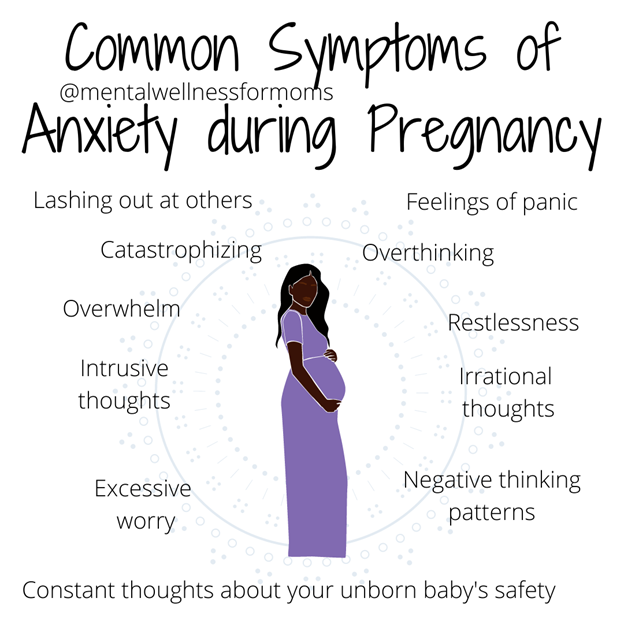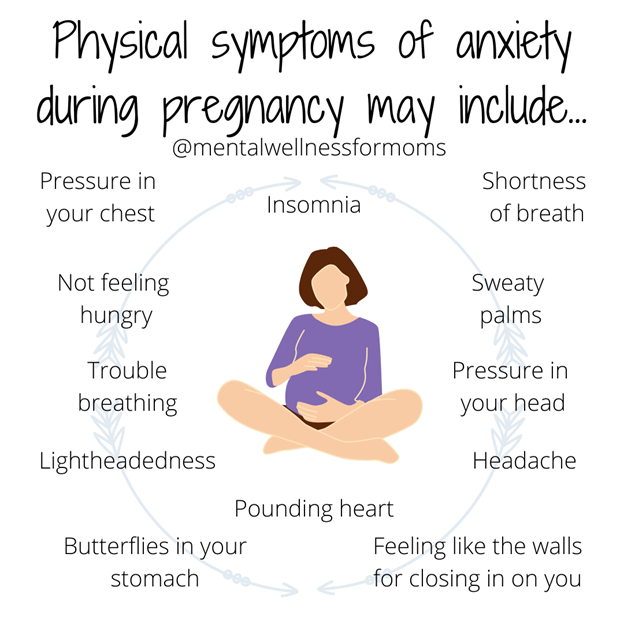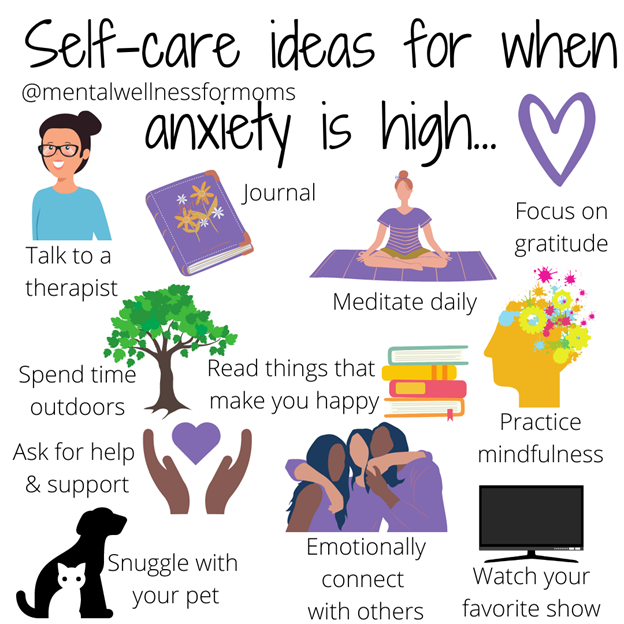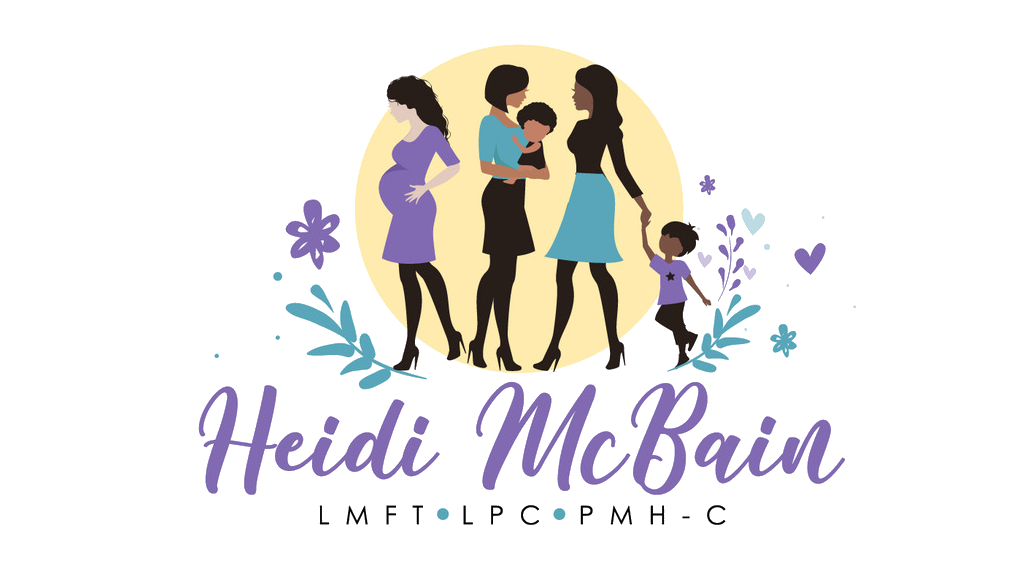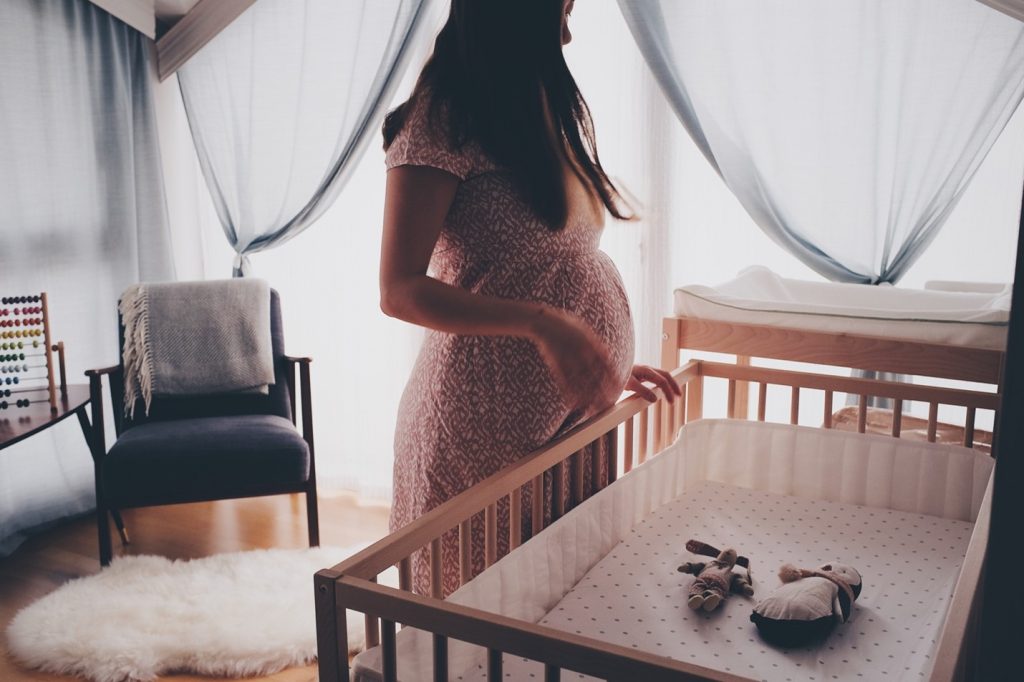
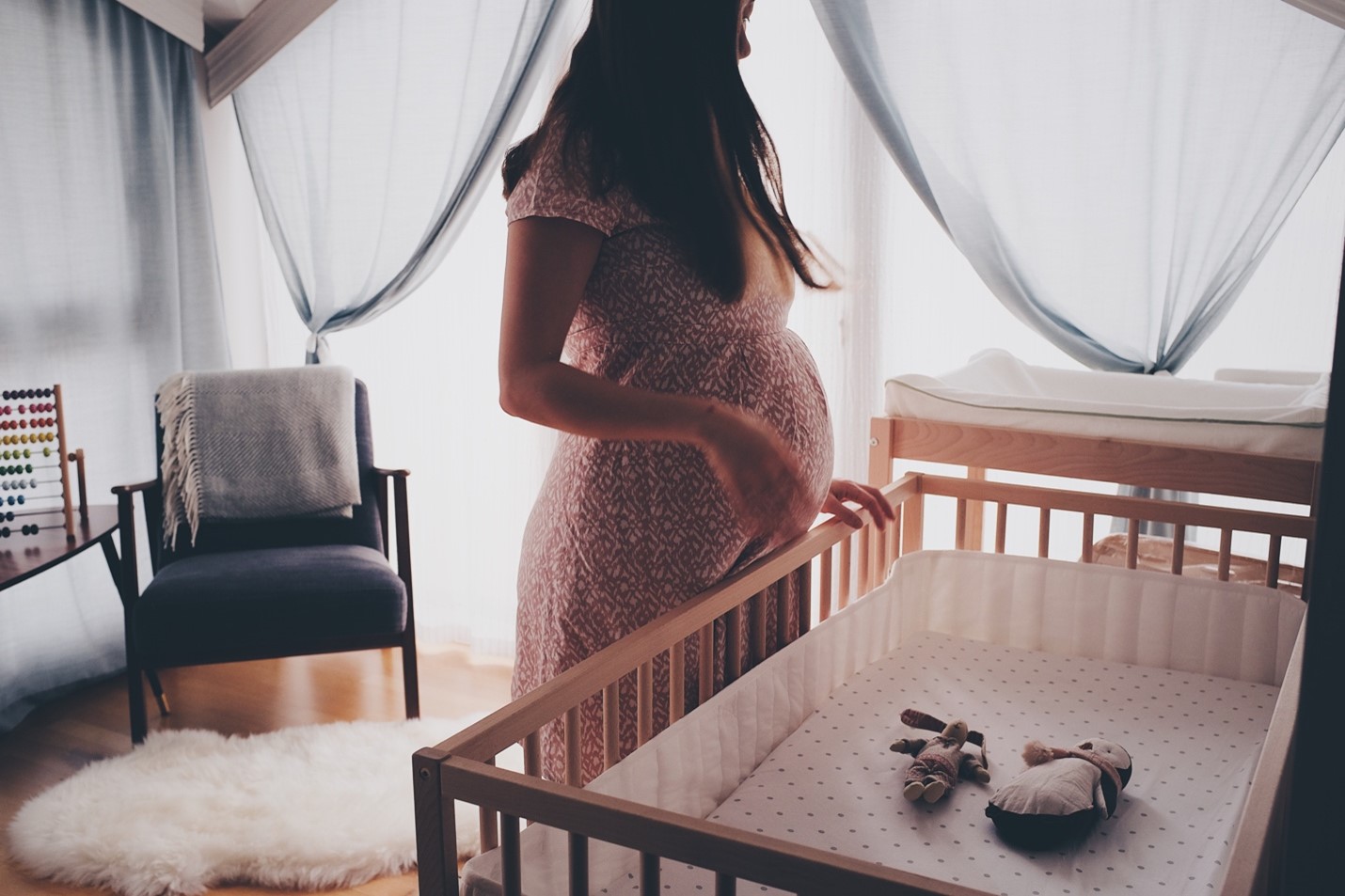
A further sign of health is that we don’t become undone by fear and trembling, but we take it as a message that it’s time to stop struggling and look directly at what’s threatening us.
-Pema Chodron
PMADs or Perinatal Mood and Anxiety Disorders may show up at any time during pregnancy and postpartum. According to the Postpartum Stress Center, 1 in 5 moms experience a PMAD. And, this rate may actually be higher because many moms don’t reach out for help when they are suffering. (Many moms may be masking how they’re really doing internally and presenting to the world externally that everything is fine).
The term perinatal includes postpartum as well as pregnancy. Even though we’re focusing on pregnancy in this blog, I want you to keep in mind that some of the symptoms we’re discussing may be present during the postpartum period as well.
Anxiety during Pregnancy
Symptoms of anxiety during pregnancy may include:
- Overwhelm
- Restlessness
- Ruminations
- Intrusive thoughts
- Excessive worry about the future and “what if…” statements
- Irrational thoughts
- Overthinking
- Negative thinking patterns
- Feelings of panic
- Catastrophizing- making things bigger than they actually are right now
- Lashing out at your partner or your older kids
- Constant thoughts about your pregnancy and your unborn baby’s safety
Physical symptoms of anxiety during pregnancy may include:
- Pounding heart
- Shortness of breath/Trouble breathing
- Sweaty palms
- Light headedness
- Headache/pressure in your head
- Pressure on your chest
- Butterflies in your stomach
- Insomnia/not being able to sleep
- Not feeling hungry
- Feeling like the walls are closing in on you
Any physical symptoms you’re experiencing should always first be checked out by your medical doctor to make sure a medical issue isn’t being missed, because mental health and medical issues can present with similar physical symptoms.
Keep in mind, anxiety often switches from worrying about yourself if you had anxiety before pregnancy and postpartum to worrying about something happening to your baby when you’re in the perinatal period.
There’s also a correlation between anxiety and sleep; when sleep is low, anxiety is often higher than normal. This can be helpful to remember the day after a sleepless night, especially late in the third trimester when it’s often hard to get comfortable and get a good night of sleep.
Anxiety can show up in pregnancy in a lot of different and even creative ways such as panic attacks, phobias, OCD (Obsessive-Compulsive Disorder), and so forth.
Finally, here are some self-care ideas for when anxiety is running high:
- Talk to a therapist
- Journal
- Meditate daily
- Focus on gratitude
- Spend time outdoors
- Read things that make you happy
- Practice mindfulness
- Ask for help and support
- Snuggle with your pet
- Emotionally connect with others
- Watch your favorite show
What else would you add to this list that’s been helpful to you when anxiety is high in your own life?
